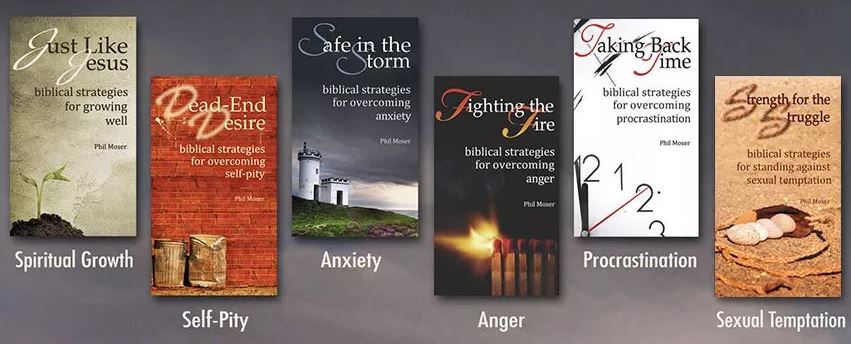How to practice patience in your relationships

 Patience is a key word for any relationship that wishes to go the distance. I once heard people compared to porcupines huddling together on a cold evening for warmth. Once they warm up, their quills begin to prick each other and they move away only to grow cold again. We need others, but they also annoy us. That’s why patience is such a needed virtue in our relationships. While it is the fourth quality catalogued for the Fruit of the Spirit (Gal 5:22-23), it is the first of seventeen qualities listed that define love in the book of 1 Corinthians (1 Corinthians 13:4-6). The word translated “patient” in both lists is the word makrothymeo. It is comprised of two Greek words: macro meaning long and thumos meaning temper. To be a patient person is to be long-tempered. The circumstances that would reveal anger in the average person don’t seem to affect the patient person in the same way. While the Bible tells us love is patient, I have found it’s often hardest to be patient with those I claim to love the most. The more comfortable we are in a relationship, the more likely we are to grow impatient with one another’s shortcomings.
Patience is a key word for any relationship that wishes to go the distance. I once heard people compared to porcupines huddling together on a cold evening for warmth. Once they warm up, their quills begin to prick each other and they move away only to grow cold again. We need others, but they also annoy us. That’s why patience is such a needed virtue in our relationships. While it is the fourth quality catalogued for the Fruit of the Spirit (Gal 5:22-23), it is the first of seventeen qualities listed that define love in the book of 1 Corinthians (1 Corinthians 13:4-6). The word translated “patient” in both lists is the word makrothymeo. It is comprised of two Greek words: macro meaning long and thumos meaning temper. To be a patient person is to be long-tempered. The circumstances that would reveal anger in the average person don’t seem to affect the patient person in the same way. While the Bible tells us love is patient, I have found it’s often hardest to be patient with those I claim to love the most. The more comfortable we are in a relationship, the more likely we are to grow impatient with one another’s shortcomings.
One of the causes of our impatience with those we love is that while an angry temper has an emotional element, it begins as a thought process. In our thinking, we make a judgment of another. Those judgments come quickly, and with those we know well they occur even more swiftly. If you know that bothers me, why do you keep doing it, is the way we often think about those we know best. Take that thought, stir in a little emotion, and it’s easy to lose your patience.
Christians counter this thinking by remembering that God is better at judging than we are. Throughout the Bible, God is referred to as a judge (Psalm 50:6; 75:7; Isaiah 33:22). In fact, the apostle Paul spoke of God as the “righteous judge” (2 Tim. 4:8) One of the reasons God’s judgements are perfect is that he can see the beginning and the end of a situation (Ps. 90:2). You and I cannot. If we could, perhaps we would be more patient.
The patient person gives God time to act.
Over fifteen years ago I counseled a young man who struggled with substance abuse. I was not alone in my investment. His parents were deeply involved as were other spiritual leaders. Over a period of 14 years he would be in and out of 18 different rehab facilities and programs. Unable to hold down a job, he became alienated from his two daughters and ran up $40,000 in past-due child support. The situation appeared hopeless. It was easy to make a judgment of his future, to become impatient and quit trying.
I met him at a conference recently, and was overjoyed to hear his story. He had been clean for the last four years. He was happily married and directing a recovery facility in another state. His child support paid in full, his youngest daughter now lived with him, and his oldest daughter, now married, had moved into his town just to be near to her dad. Wow! I don’t know whose smile was broader after he told the story — his or mine. I had to acknowledge I couldn’t have seen that coming, but God did. Perhaps that’s why God is so patient with us. He sees the beginning and the end. Don’t be so quick to quit on your relationships. Being patient means you give God room to act.
The patient person considers the consequences before he or she acts.
Perhaps you, like me, wish you could take certain words and actions back. I love the members of my family, yet there have been times I didn’t consider the effect of my words before I said them. The nature of our imperfect relationships means that at times we will be hurt by what others say or do. When we have been hurt, it’s easy to strike back. John Maxwell once said,
People who have been hurt tend to hurt others.
This is why patience is needed in our relationships.
In Bronte’s 19th century novel Jane Eyre she writes,
It is far better to endure patiently a [hurt] which nobody feels but yourself, then to commit a hasty action whose evil consequences will extend to all connected with you.
So, to practice patience in your relationships today: (1) give God time to act, and (2) consider the consequences on your relationships before you choose to act or speak.
Phil Moser is the author of the Biblical Strategies series, and the developer of 4M Training: a unique approach to spiritual growth for men. All of his resources can be found at biblicalstrategies.com and on amazon.


